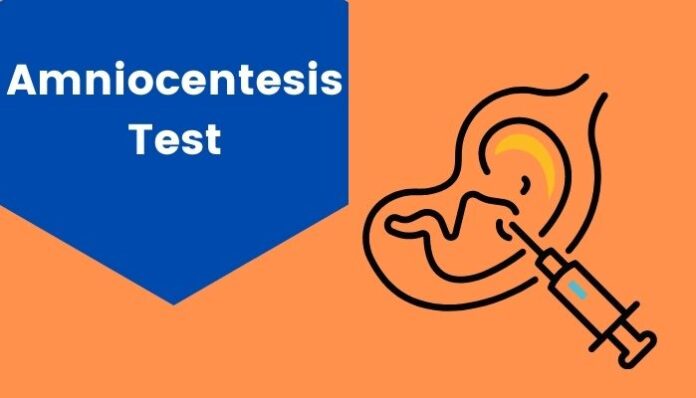Wondering what is an amniocentesis test? This is a specific type of test which is done for various purposes including analysis of chromosomes or any other genetic issues/defects with fetuses. The amniocentesis procedure is also conducted for finding any chromosomal abnormalities for the fetus in the case of pregnant women or finding the fetal lung maturity.

It is even done for detecting the causes behind the mother’s fever. The test is usually done between weeks 16-21 of pregnancy for genetic and chromosome analysis along with an abnormal alpha-fetoprotein test. Another aspect worth knowing is that the amniocentesis risks are usually lower than 1% as far as fetal losses are concerned.
Procedure of Amniocentesis
The amniocentesis test is a process where the fluid sample is taken for evaluation from the amniotic sac. It is present in the uterine cavity and is the structure in the uterus that is filled with fluid. This is where the about-to-be-born fetus lives, with free movements of protein, fetal cells, and urine within the same. Fluid is taken via a longish needle going into the sac. The needle goes into the sac with assistance from ultrasound imaging done either before or at the time of the test.Upon injecting the needle into the amniotic sac, the amniotic fluid is taken out with a syringe. The fluid volume is dependent on the fetus’ age and procedural reasons. Doctors may then await the amniocentesis test results including the genetic test, spina bifida evidence, fetal lung maturity, and other defects in the neural tube or any other infections. Chromosomal evaluation requires at least a couple of weeks. The amniotic fluid also has minerals, proteins, and other elements which may also be tested. These extra analyses need around 1-7 days as well. Data from the test results may help doctors make better decisions regarding pregnancies of women. The test is most comfortable for women although some may witness some cramping or faintness at times.
Purpose of Amniocentesis Test
This test is required for women who are above 35 years of age. Chromosomal issues may ultimately lead to birth defects and intellectual issues along with other disabilities. With the increasing age of the mother, the risks of chromosomal defects go up accordingly. The chances come down to 1 out of 63 for those who are 40 years of age while for those who are 35, it is 1 out of 178. The ratio turns to 1 out of 8 by the age of 48. For women younger than 35 years of age, there could be complications and other risks.The amniocentesis procedure may also be recommended by doctors for women with a family history of births where chromosomal defects or issues were detected. These tests help in finding such abnormalities along with helping doctors decide on delivery timings for women who have prematurely gone into labor and also for those suffering from diabetes and other medical issues. Lung maturity testing may be required in such scenarios. The AFP blood test may help in finding Down’s syndrome, spina bifida and neural tube issues. A higher level may indicate chances of brain or spinal cord defects. Lower levels of AFP may indicate the chances of Down’s syndrome.
Amniocentesis also helps in checking cells for any particular genes along with detecting sickle cell anemia, inherited ailments and cystic fibrosis. It also helps in finding any particular amniotic fluid protein that indicates genetic abnormalities.
Frequency of the Amniocentesis Test
- For chromosomal analysis, gene testing and evaluation of AFP test abnormalities, the procedure is done between weeks 15-21 of pregnancy.
- Miscarriage risks are higher for such procedures done prior to the 15th pregnancy week.
- If it is done for assessing fetal lung maturity, then the preferred timeline is between weeks 32-36 of pregnancy.
- Lung maturity tests could be done by the 39th week for women who have diabetes.
Risks of Amniocentesis
- The procedure is mostly safe with fetal loss risks standing at less than 1%.
- The test should only be done when it has clear benefits as per the doctor.
- Many patients often get this procedure for reassurance regarding the fetus. However, ideal results do not always guarantee the absence of future birth defects.
- Amniocentesis cannot always find all kinds of birth defects.
- Other risks include cramping, bleeding and fluid leaks from the amniotic sac. The chances of these issues are 1% for women.


